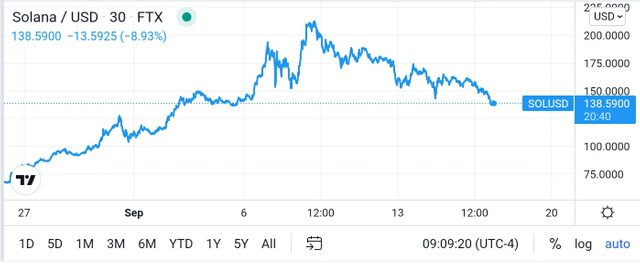Solana's Blockchain Crashes And Restarts, How Can It Be?
A few days ago the Solana blockchain experienced a problem that caused its users to not be able to access the blockchain.
According to Solana, this was due to the dramatic increase in the number of transactions to 400 thousand transactions per second (TPS).
This spike in the number of transactions resulted in a lot of wasted resources on the blockchain servers that process these transactions.
This waste of resources leads to a denial of service so that users cannot access them.
After several hours of downtime, the validators finally agreed to restart the Solana blockchain to address this.
Some things to pay attention to are:
- Blockchain has problems even though the number of transactions is only 60% of capacity (700 thousand TPS).
- Long enough downtime up to several hours.
- Blockchain must be restarted to resolve it.
Why is the blockchain already having problems when the number of transactions is still far below capacity? There are fundamental problems that need to be fixed from the technical side of blockchain development.
Then the long downtime causes users to be disturbed and harmed. Imagine your online game has to stop for a few hours. Or your smart contract will fail, etc.
Then how is it possible for a blockchain to be restarted? What about the immutability of the transaction? And can this blockchain still be considered decentralized?
We can see the effect of this problem on Solana's price like the chart above. Slowly but surely the price is being corrected.
And it should be noted that these problems have never been experienced by the oldest blockchain still running today, namely the bitcoin blockchain since 2009.
See also:
